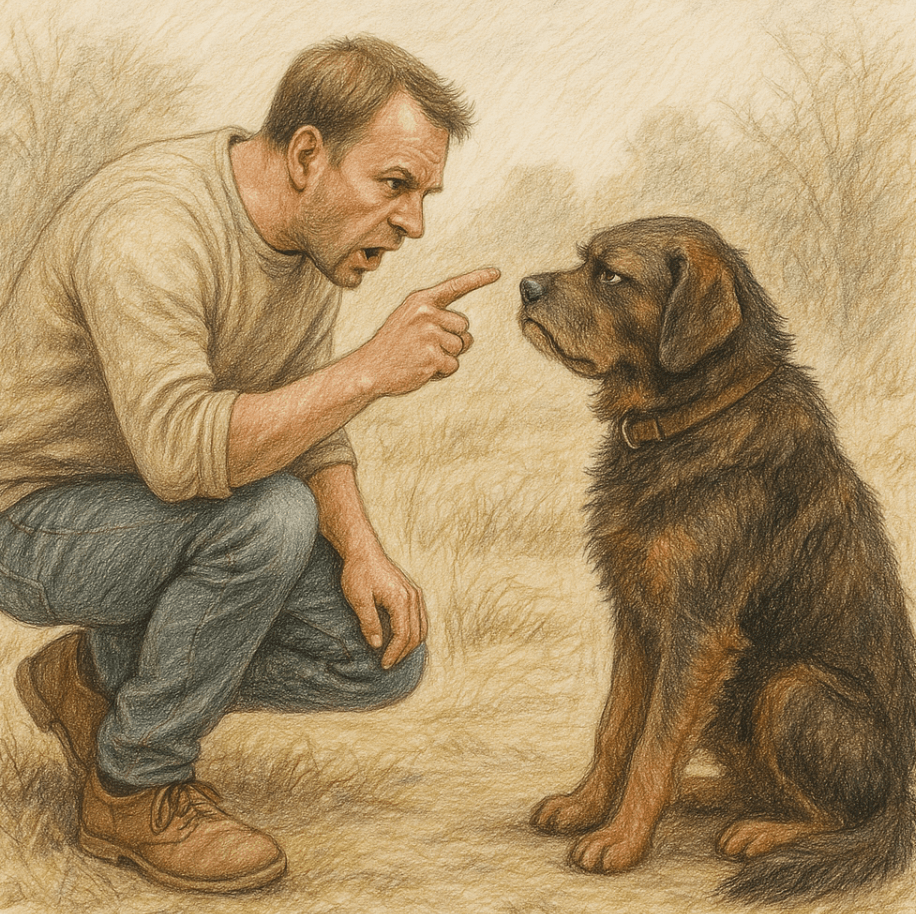How to Make My Dog Stop Barking When I Leave: A Guide to Peaceful Departures
Leaving your dog at home should be a stress-free experience—for both you and your furry friend. However, if your dog barks incessantly every time you step out the door, it can create anxiety for everyone involved. This behavior, often rooted in separation anxiety or boredom, is not only disruptive but can also strain your relationship with neighbors. Fortunately, there are effective strategies to help your dog feel more comfortable when you leave. By understanding the causes of excessive barking and implementing practical solutions, you can transform your dog’s reaction to your departure into calm acceptance. Let’s explore how to make your dog stop barking when you leave and restore harmony to your household.
Understanding Why Your Dog Barks When You Leave
Before addressing the issue, it’s essential to understand why your dog barks when you leave. Dogs are social animals, and your absence can trigger feelings of loneliness, fear, or insecurity. Here are some common reasons behind this behavior:
Separation Anxiety : Many dogs experience distress when separated from their owners, leading to vocalization as a coping mechanism.
Boredom : Lack of mental or physical stimulation can cause dogs to bark out of frustration or restlessness.
Territorial Instincts : Some dogs bark to protect their space, perceiving your departure as a potential threat.
Excitement or Attention-Seeking : Your dog may bark to prolong interaction with you or express excitement about your return.
Routine Triggers : Certain actions, like picking up keys or putting on shoes, can signal your departure and prompt barking.
Understanding the root cause of your dog’s barking is the first step toward finding a solution that works for both of you.
Proven Strategies to Reduce Barking Before You Leave
Preparation is key to minimizing barking when you leave. By implementing these strategies, you can help your dog feel more secure and less reactive to your departures.
Desensitize Departure Cues : Practice routine actions like grabbing keys or putting on shoes without leaving. This helps your dog associate these cues with calmness instead of anxiety.
Create a Pre-Departure Routine : Spend a few minutes playing or exercising with your dog before leaving. This tires them out and reduces pent-up energy.
Provide Mental Stimulation : Leave interactive toys or puzzles that keep your dog engaged while you’re gone.
Use Calming Scents : Products like lavender sprays or pheromone diffusers can help soothe an anxious dog.
Gradual Departures : Start by leaving for short periods and gradually increase the duration. This helps your dog adjust to longer absences over time.
By preparing your dog emotionally and physically, you can reduce their need to bark when you leave.
Check this guide 👉How to Make a Dog Bark: Best 7 Expert Tips!
Check this guide 👉Why Does My Dog Bark in His Sleep? Best 7 Expert Tips!

Pre-Departure Tips | Post-Departure Solutions |
|---|---|
Desensitize departure cues | Leave calming music or white noise on |
Exercise your dog before leaving | Use auto-feeders for meal distractions |
Provide interactive toys | Set up a camera to monitor behavior |
Gradually increase absence durations | Reward calm behavior upon return |
Use calming scents or diffusers | Consult a trainer for persistent issues |
Training Techniques to Stop Excessive Barking
Training plays a crucial role in teaching your dog to remain calm when you leave. Consistent practice and positive reinforcement can yield remarkable results.
Teach the “Quiet” Command : Reward your dog with treats or praise when they stop barking on command. Repeat this until they associate silence with rewards.
Practice Short Absences : Leave the house for just a minute or two, then return without fanfare. This helps your dog realize your departures are temporary.
Ignore Attention-Seeking Behavior : Avoid reinforcing barking by giving attention. Wait for quiet moments before engaging with your dog.
Reward Calm Behavior : Offer treats or affection when your dog remains calm during your pre-departure routine.
Stay Calm Yourself : Dogs pick up on their owner’s emotions. If you stay relaxed, your dog is more likely to mirror your demeanor.
With patience and consistency, these techniques can help your dog learn to stay quiet when you leave.
Environmental Adjustments to Minimize Barking
Sometimes, simple changes to your dog’s environment can make a big difference in reducing barking. These adjustments create a more soothing atmosphere for your pet.
Block Outside Stimuli : Close curtains or blinds to prevent your dog from reacting to people, animals, or vehicles passing by.
Designate a Safe Space : Create a cozy corner or crate where your dog feels secure and comfortable.
Play Soothing Sounds : Leave on calming music, nature sounds, or white noise to mask external noises that might trigger barking.
Use Distraction Tools : Leave chew toys, bones, or treat-dispensing toys to occupy your dog’s attention.
Adjust Lighting : Ensure the room isn’t too dark or too bright, as extreme lighting can heighten anxiety.
These environmental tweaks can help your dog feel more at ease, reducing the likelihood of barking when you leave.
Boosting Your Dog’s Self-Assurance to Reduce Barking
A confident dog is less likely to feel anxious or threatened when you leave. By focusing on building your dog’s self-esteem, you can help them become more independent and less reliant on your constant presence. Here are some effective ways to nurture their confidence:
Encourage Exploration : Allow your dog to explore new environments safely, such as parks or quiet streets, to help them feel more secure in unfamiliar situations.
Teach New Tricks : Learning new commands or skills boosts your dog’s confidence and strengthens the bond between you.
Provide Leadership : Establish yourself as a calm and consistent leader to make your dog feel safe and secure.
Socialize Regularly : Introduce your dog to other people and animals to reduce their fear of being alone.
Celebrate Small Wins : Reward progress, no matter how minor, to reinforce positive behavior and build trust.
By fostering your dog’s confidence, you empower them to handle your absence with ease and independence.
Tackling the Root Cause of Excessive Barking
Separation anxiety is one of the most common reasons dogs bark when left alone. Addressing this issue requires patience and a structured approach to help your dog feel more comfortable. Consider these strategies to alleviate separation anxiety:
Create a Safe Space : Designate a specific area, like a crate or bed, where your dog feels secure and relaxed.
Practice Short Departures : Leave for brief periods and gradually extend the time to help your dog adjust to longer absences.
Use Positive Reinforcement : Reward your dog for calm behavior during departures and arrivals to reinforce positive associations.
Avoid Emotional Goodbyes : Keep your departures low-key to prevent triggering anxiety in your dog.
Consult a Professional : If anxiety persists, seek guidance from a veterinarian or animal behaviorist for tailored advice.
With consistent effort, you can help your dog overcome separation anxiety and reduce barking when you leave.
Establishing Predictability to Minimize Stress
Dogs thrive on routine, and a predictable schedule can significantly reduce their stress levels. By incorporating structure into your daily life, you can help your dog feel more at ease when you’re not around. Here’s how to establish a calming routine:
Set Regular Feeding Times : Consistent meal schedules provide stability and help regulate your dog’s energy levels.
Schedule Daily Walks : Physical activity reduces pent-up energy and promotes relaxation during your absence.
Incorporate Training Sessions : Dedicate time each day to practice obedience or tricks, reinforcing discipline and focus.
Maintain a Departure Ritual : Develop a calming pre-departure routine, such as sitting quietly with your dog, to signal that it’s time to relax.
Stick to a Sleep Schedule : Ensure your dog has a consistent bedtime to promote restful nights and reduce daytime anxiety.
A well-structured routine helps your dog feel more secure, making it easier for them to stay calm when you leave.
Frequently Asked Questions About Stopping Dog Barking
Why does my dog bark only when I leave?
This behavior is often linked to separation anxiety, boredom, or territorial instincts. Identifying the cause is the first step to addressing it.
How long does it take to train a dog to stop barking?
Training duration varies depending on the dog’s personality and the severity of the issue. Consistency is key, and progress may take weeks or months.
Can I use bark collars to stop my dog from barking?
Bark collars can suppress barking temporarily but don’t address the underlying cause. Positive reinforcement is a more humane and effective approach.
What if my dog barks even after trying all these methods?
Persistent barking may require professional help. Consider consulting a veterinarian or certified dog trainer for tailored guidance.
Is it normal for puppies to bark when left alone?
Yes, puppies often bark due to loneliness or lack of training. With proper socialization and routine-building, this behavior usually improves over time.
Creating a Peaceful Goodbye: Helping Your Dog Stay Calm
Saying goodbye to your dog doesn’t have to be accompanied by a chorus of barks. By understanding the reasons behind their behavior and implementing proven strategies, you can teach your dog to remain calm and content when you leave. Whether through training, environmental adjustments, or gradual desensitization, there are countless ways to address this common challenge. Remember, patience and consistency are essential as you work together to build trust and security. With time and effort, you’ll create a peaceful routine that benefits both you and your beloved companion.
Activated Charcoal Dose for Dogs: Best 7 Expert Tips! Learn safe dosage guidelines, administration tips, and precautions to effectively use activated charcoal for your dog’s health.
Hydrogen Peroxide Dosage: Best 7 Expert Tips! Learn safe usage, proper dilution, and expert advice for effective cleaning, wound care, and more without risks.
What to Feed a Dog with Diarrhea: Best 7 Expert Tips! Discover safe foods, hydration tips, and expert advice to help your dog recover quickly and comfortably from diarrhea.
Teaching Recall to a Stubborn Dog: Best 7 Expert Tips! Discover proven strategies to train your dog effectively, build trust, and master recall with patience and positive reinforcement.





